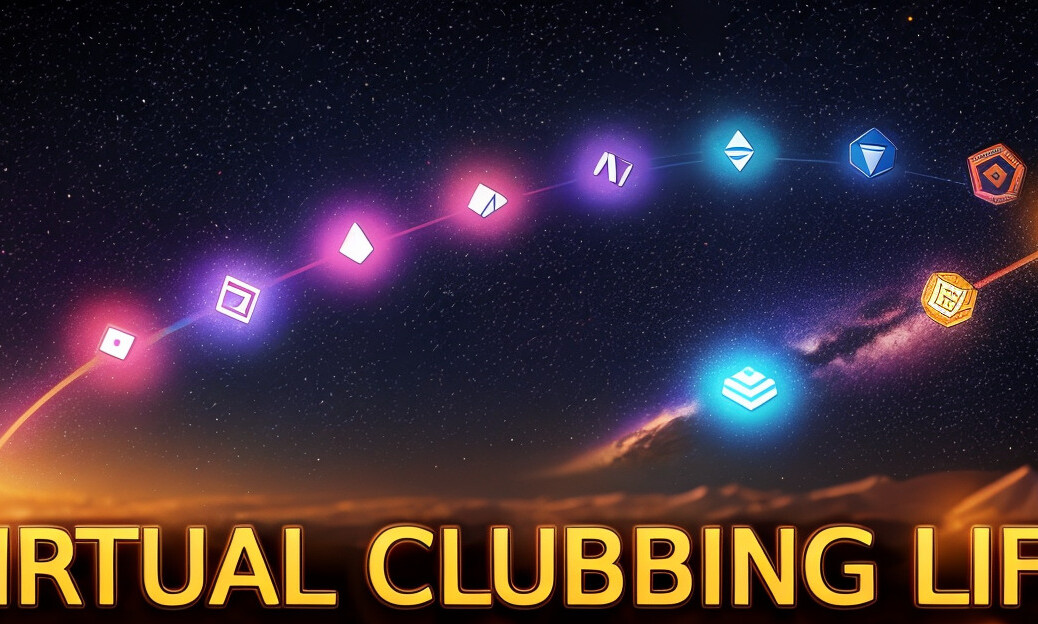In the world rapidly evolving due to digital transformation, the way we conduct business, make transactions and even consume entertainment is drastically changing. Blockchain, a technology synonymous with cryptocurrencies like Bitcoin, is now making waves across a host of industries. Two sectors particularly primed for disruption by this groundbreaking technology are the music industry and financial systems, particularly cryptocurrencies. This article explains the concept of blockchain, explores its impacts on the cryptocurrencies, and studies how it is reshaping the music industry.
Unraveling the Mystery: Blockchain Defined
In the simplest terms, blockchain is a decentralized, secure, and transparent way of recording and verifying transactions. It is effectively a public ledger of transactions spread across many computers that have participated in those transactions. Each new transaction, or ‘block’, is added to a chain of historical transactions, hence the term ‘blockchain’. Unlike traditional transaction systems, where a central authority validates transactions, in blockchain, validation is carried out by multiple parties, which makes it resistant to fraud and hacking.
A key attribute of blockchain is its transparency, which allows anyone to trace and verify transactions. This is achieved through cryptographic hashes, unique identifiers for each block, which help ensure the integrity and security of the blockchain. Another essential feature is its immutability; once a transaction is recorded, it cannot be changed or deleted without the consensus of the network, making blockchain a reliable and trustworthy system.
Impacts of Blockchain on the Cryptocurrency Revolution
The advent of blockchain technology has sparked a revolution in financial systems, particularly the emergence of cryptocurrencies. Cryptocurrencies, with Bitcoin at the helm, leveraged the power of blockchain to create virtual currencies that are decentralized, secure, and transparent. Blockchain provides an efficient platform for transferring digital assets without the need for intermediaries like banks, thus making transactions faster and more cost-effective.
Moreover, blockchain’s decentralized nature provides a certain level of anonymity to users, which has been a significant selling point for cryptocurrencies. It also offers transparency, allowing every transaction to be traced and verified, thereby enhancing trust and security. Blockchain has also enabled the creation of smart contracts, which are self-executing contracts with the terms of the agreement written into code. These have vast potential for automating and streamlining transactions.
Blockchain’s Melody: Reshaping the Music Industry
Blockchain is hitting the right notes in the music industry too. Historically, artists have often been short-changed when it comes to royalty payments due to lack of transparency and efficiency in the current system. Blockchain could potentially revolutionize this by creating a decentralized and transparent system where every sale or stream can be accurately tracked and instantly paid.
With blockchain, artists can ‘tokenize’ their music, creating unique digital assets that fans can buy, trade or invest in, thereby offering a new revenue stream. It also offers a way to register copyright and manage intellectual property rights, providing a reliable, tamper-proof record of ownership. Blockchain can also eliminate intermediaries in music distribution, allowing artists to sell directly to fans and retain a greater share of the revenue.
Looking Forward: Future of Blockchain in Crypto and Music
The future of blockchain in cryptocurrencies looks promising. With the growing adoption of crypto globally, blockchain technology is set to become even more significant. It’s expected to further enhance the speed, security, and efficiency of transactions, and enable new forms of digital assets. Furthermore, the rise of decentralized finance (DeFi) is opening new avenues for blockchain application within the financial sector.
In the music industry, while the application of blockchain is still in its nascent stages, the potential for disruption is massive. As artists and businesses alike start to grasp its potential, we can expect more blockchain-based platforms that offer greater control, transparency, and efficiency. Moving forward, blockchain could indeed play a central role in realizing the much-needed fairness and transparency in the music industry.
As the world continues to navigate the digital era, blockchain is proving to be more than just a buzzword. Its transformative impact on the cryptocurrency market has already been witnessed, and the music industry might just be the next big frontier. While challenges of scalability, regulation, and mass adoption still exist, the potential benefits of blockchain in these sectors are too significant to ignore. As we continue to unravel the intricacies of blockchain technology, one thing is certain, it holds a tune of revolution for both the crypto and music industry.
Tags: crypto












